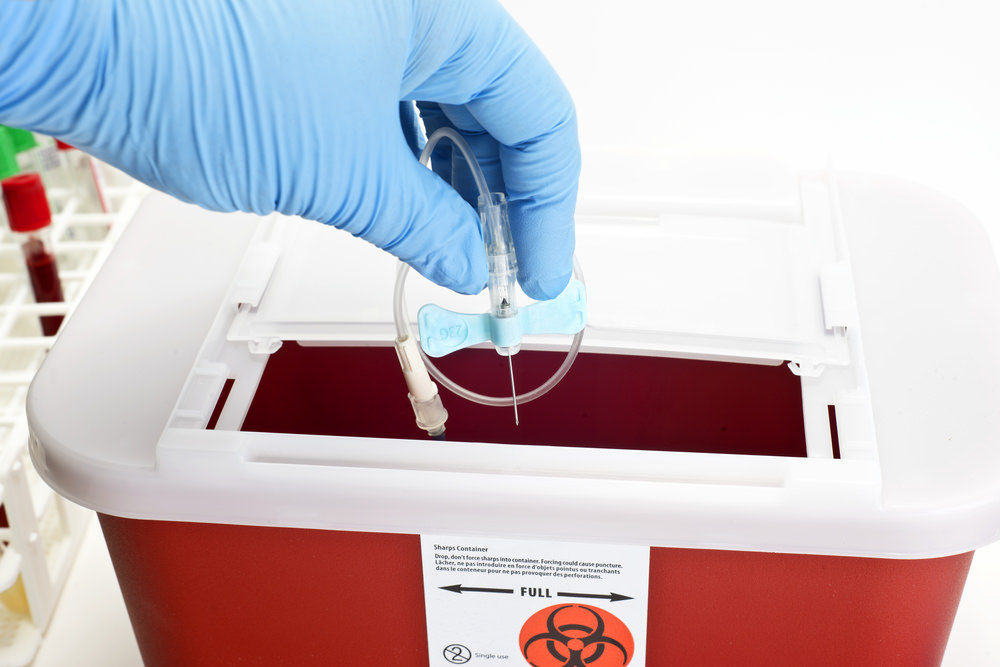Biomedical waste is characterised by being waste that has been created through the production of pharmaceuticals, or the treatment and diagnosis of patients in hospitals and other medical services. Many professionals that work in the health sector will need to deal with this type of waste. Biomedical waste comes with many risks, such as that of infection, so it must be handled correctly according to procedures that have been implemented throughout the healthcare industry. This article will focus on the efficient and safe disposal of common types of biomedical waste.
The Importance of Safe Handling of Biomedical Waste
Before exploring the common types of biomedical waste, looking into the reasons behind why it is vital for professionals to treat this type of waste with the highest level of care should be understood. The waste that is generated from the healthcare industry, primarily through the treatment and diagnosis of patients in hospitals, is likely to be highly infectious and hazardous to the general public. Hence, unmanaged waste of this manner is a public health concern. Many governments and medical organisations have worked together to come up with strict policies and legislation that ensure that this type of waste is handled and disposed of safely and efficiently.
Professionals who are new to the handling of biomedical waste should immediately acquaint themselves with the protocols used for the various types of waste which will be discussed further in this article. Generally, it is imperative for individuals that foresee themselves coming into contact with biomedical waste to consult local waste management services which have expertise in biomedical waste. These waste management services often are able to assist those who don’t have much experience dealing with this type of waste. Many waste management services can provide an extensive service that will take care of all of the different kinds of medical waste that a particular professional may need to dispose of.
Radioactive Medical Waste
One common type of medical waste is radioactive medical waste. This type of waste is often created as a byproduct of diagnosis and treatments that require the use of radioactive medicine. There is a vast amount of different applications for radioactive medicine, which leads to a massive buildup with this type of waste in most medical facilities. Radioactive waste is mostly created in facilities which provide medical imagery. X-rays and other forms of diagnostic imaging are entirely dependent on the use of radioactive materials in order to be produced. The facilities which facilitate these imagery techniques will need strict procedures for the handling of radioactive materials as well as the disposal of the radioactive waste that is created.
Radioactive waste is also created through many different treatments, such as radiotherapy which is commonly used for many different cancers. In the same manner as medical imagery that uses radioactive materials, radioactive therapies also create a large amount of this type of waste. Any manager of a medical service which provides either medical imagery or radioactive treatments should organise for the safe disposal of the waste that is produced.
Infectious Medical Waste
Perhaps the most common type of medical waste witnessed in hospitals is infectious medical waste. Many times, through the treatment and diagnosis of the vast array of diseases and conditions that are seen in many major hospitals around the country, a multitude of infectious waste is created. Infectious waste is waste that has the potential of causing illness and disease to those that come into contact with it. As many people know, blood, mucus, and a range of other types of biological materials produced by the body have the potential to cause disease in others.
Treatments that involve bandages will often require the used bandages to be categorised as infectious waste and must be disposed of according to infectious waste protocols. Swabs and other diagnostic tests that involve such biological materials like blood must also be carefully disposed of according to protocols. Infectious waste must be handled properly to ensure public safety, even small medical facilities will most likely experience a buildup of infectious waste, thus they should arrange for safe disposal.

Hazardous Medical Waste
In contrast to infectious waste, hazardous waste isn’t contagious. However, hazardous waste is still hazardous as it involves any waste that could cause injury or harm to those that either are exposed to or come into contact with it. Hazardous waste, much like infectious waste, is often a byproduct of diagnostic tests that are commonly used for various medical ailments. Furthermore, hazardous waste is usually produced through the treatments commonly enforced in hospitals.
The most common example of this kind of waste is syringes and needles. Syringes and needles are heavily used throughout all aspects of the healthcare sector, such as for blood tests and the administration of medicine. Also, used scalpels and other operative tools that have been used for surgery must also be disposed of through hazardous waste protocols.
If you are unsure about how to dispose of your medical waste, please get in touch with us at All Medical Waste on 1300 389 125 and we will advise you on the best way forward.



